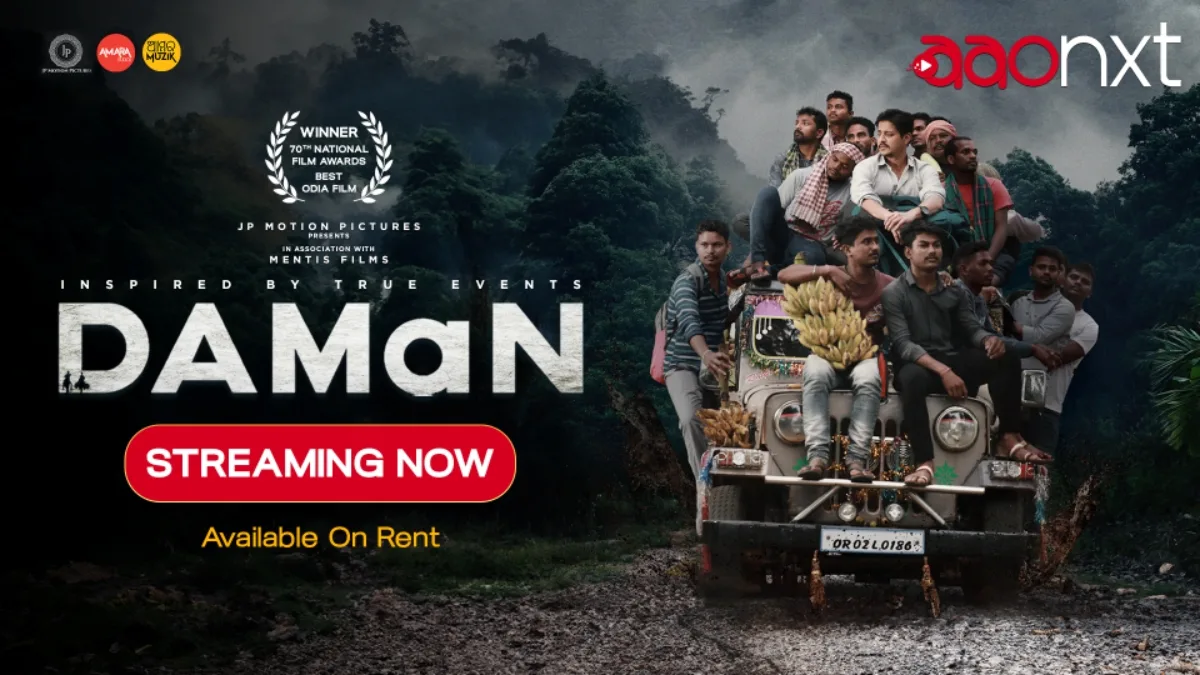Content Licensing for Publishers and Aggregators: Everything You Must Know
Overview Whether you are an aggregator or a publisher, licensing plays a crucial role in granting access to a broader range of content and earning revenue while upholding intellectual property rights. For publishers, licensing enables them to own the right to publish and distribute works, while for aggregators, it gives the right to collect and distribute content from a variety of sources. In this blog post, we will cover content licensing for publishers as distribution partners and aggregators as sourcing partners, including the most important factors to take into consideration when licensing for each partner. What is Content Licensing? Content licensing is a comprehensive legal contract under which the owner of the copyrighted content (the licensor) grants another party (the licensee) the right to use, distribute or reproduce their intellectual property and content on certain terms and conditions, typically for a fee. The permission is normally outlined within a licensing agreement, which defines the scope, duration and payment terms for using the content. Types of Content Licensing: · Exclusive Licensing: This type of content licensing permits a single licensee the sole right to utilise the content, usually in a specified territory or for a limited period. · Non-exclusive Licensing: This permits the owner of the copyrighted content to license the same content to multiple entities at the same time. · Sole Licensing: This is a unique type of license where the owner retains the right to use the content for themselves but licenses it to others as well. Understanding Content Licensing for Publishers as Distribution Partners Content licensing for publishers is defined as a distribution partnership whereby a publisher licenses another party the right to reproduce their copyrighted materials for a specific purpose and time, often in exchange for a fee or other form of consideration. It helps publishers increase their exposure and income streams by monetising their available content assets on various platforms. Advantages of Content Licensing for Publishers: Here are the major advantages of content licensing for publishers. · Revenue Generation: Through licensing, publishers can earn extra revenue from content that has already been created. They can receive royalties or one-time fees for the use of their licensed content, depending on the contract. · Audience Expansion: Through content licensing to other platforms or companies, publishers can expand their audiences and gain greater brand visibility. · Strategic Partnerships: Content licensing enables an alliance with other organisations that need high-quality content for marketing, promotion, or other purposes. · Increased SEO: Licensed content may result in more pages being indexed on a site, which can boost search engine rankings and traffic. · Legal Compliance: Licensing agreements ensure that content is used legally and ethically, protecting the publisher's intellectual property rights and preventing potential legal problems related to copyright infringement. Understanding Content Licensing for Aggregators as Sourcing Partners Content licensing for aggregators acting as sourcing partners entails providing access to copyrighted materials such as articles, images, and videos under specific terms. This enables aggregators to utilise and distribute such content legally, often for a fee, while the original content creator maintains ownership. Content licensing contracts determine the scope of use, period, and approved changes, protecting both parties involved. Benefits of Content Licensing for Aggregators Content licensing offers several benefits for aggregators, including: · Access to a Large Range of Content: Licensing allows aggregators to easily expand the quantity and diversity of content on their platform with minimal time. · Cost Savings: Licensing can result in savings on costs for aggregators as it enables them to provide a large range of content without having to produce it themselves. · Enhanced User Experience and Engagement: Aggregators are able to provide a wide range of content that addresses various user interests and enhances user satisfaction and interactivity. By licensing, aggregators are able to bring in new segments of users and widen their audience base. · Revenue Generation: Licensing contracts have the potential to create revenue through royalty charges or by driving user traffic and engagement, which can then be monetised in the form of advertisements or subscriptions. · Legal Compliance and Brand Reputation: Aggregators can have a good brand reputation and avoid legal trouble due to unauthorised use of copyrighted work by using licensed co

Overview
Whether you are an aggregator or a publisher, licensing plays a crucial role in granting access to a broader range of content and earning revenue while upholding intellectual property rights. For publishers, licensing enables them to own the right to publish and distribute works, while for aggregators, it gives the right to collect and distribute content from a variety of sources. In this blog post, we will cover content licensing for publishers as distribution partners and aggregators as sourcing partners, including the most important factors to take into consideration when licensing for each partner.
What is Content Licensing?
Content licensing is a comprehensive legal contract under which the owner of the copyrighted content (the licensor) grants another party (the licensee) the right to use, distribute or reproduce their intellectual property and content on certain terms and conditions, typically for a fee. The permission is normally outlined within a licensing agreement, which defines the scope, duration and payment terms for using the content.
Types of Content Licensing:
· Exclusive Licensing: This type of content licensing permits a single licensee the sole right to utilise the content, usually in a specified territory or for a limited period.
· Non-exclusive Licensing: This permits the owner of the copyrighted content to license the same content to multiple entities at the same time.
· Sole Licensing: This is a unique type of license where the owner retains the right to use the content for themselves but licenses it to others as well.
Understanding Content Licensing for Publishers as Distribution Partners
Content licensing for publishers is defined as a distribution partnership whereby a publisher licenses another party the right to reproduce their copyrighted materials for a specific purpose and time, often in exchange for a fee or other form of consideration. It helps publishers increase their exposure and income streams by monetising their available content assets on various platforms.
Advantages of Content Licensing for Publishers:
Here are the major advantages of content licensing for publishers.
· Revenue Generation: Through licensing, publishers can earn extra revenue from content that has already been created. They can receive royalties or one-time fees for the use of their licensed content, depending on the contract.
· Audience Expansion: Through content licensing to other platforms or companies, publishers can expand their audiences and gain greater brand visibility.
· Strategic Partnerships: Content licensing enables an alliance with other organisations that need high-quality content for marketing, promotion, or other purposes.
· Increased SEO: Licensed content may result in more pages being indexed on a site, which can boost search engine rankings and traffic.
· Legal Compliance: Licensing agreements ensure that content is used legally and ethically, protecting the publisher's intellectual property rights and preventing potential legal problems related to copyright infringement.
Understanding Content Licensing for Aggregators as Sourcing Partners
Content licensing for aggregators acting as sourcing partners entails providing access to copyrighted materials such as articles, images, and videos under specific terms. This enables aggregators to utilise and distribute such content legally, often for a fee, while the original content creator maintains ownership. Content licensing contracts determine the scope of use, period, and approved changes, protecting both parties involved.
Benefits of Content Licensing for Aggregators
Content licensing offers several benefits for aggregators, including:
· Access to a Large Range of Content: Licensing allows aggregators to easily expand the quantity and diversity of content on their platform with minimal time.
· Cost Savings: Licensing can result in savings on costs for aggregators as it enables them to provide a large range of content without having to produce it themselves.
· Enhanced User Experience and Engagement: Aggregators are able to provide a wide range of content that addresses various user interests and enhances user satisfaction and interactivity. By licensing, aggregators are able to bring in new segments of users and widen their audience base.
· Revenue Generation: Licensing contracts have the potential to create revenue through royalty charges or by driving user traffic and engagement, which can then be monetised in the form of advertisements or subscriptions.
· Legal Compliance and Brand Reputation: Aggregators can have a good brand reputation and avoid legal trouble due to unauthorised use of copyrighted work by using licensed content.
· Core Competencies: Licensing enables aggregators to concentrate on their core competencies, including platform building, user interface, and marketing, while outsourcing content acquisition.
Key Factors to Consider for Licensing for Both Sides (Publishers and Aggregators)
When licensing content, both publishers and aggregators should carefully consider several key factors, including:
For Publishers (Licensors):
· Clarity and Specificity: Publishers must formulate concise and precise licensing contracts. These should clearly state the extent of usage, whether it is exclusive or non-exclusive, the time duration for the license, and any limitations on the use of the content.
· Rights Retention: Publishers have to determine which rights they want to license and which rights they will retain. This may involve rights for self-promotion, derivative works, or future use of the content.
· Monitoring and Enforcement: It is crucial to implement mechanisms to track how the licensed content is being used and ensure compliance with the agreement. Publishers should have protocols in place to address violations and take necessary legal action when required.
· Royalty Structures: While negotiating licensing deals, publishers must decide on the royalty structure, which may be a percentage of sales, revenue or a flat fee. It is also important to set minimum payments to ensure a fixed income stream.
For Aggregators (Licensees):
· Content Evaluation: Aggregators ought to thoroughly evaluate the quality, relevance and potential market appeal of the content they propose to license. This includes considering the publisher's experience with similar content and their target audience.
· Negotiation Power: Aggregators need to negotiate favourable licensing conditions, such as the scope of use, expiration dates, and royalty structures. They should also examine the exclusivity of the license and how it will affect their distribution function.
· Rights and Permissions: Aggregators must confirm that they possess the requisite rights to disseminate the content across their selected platforms and channels. This involves confirming that the intellectual property belongs to the publisher and then securing the appropriate permissions.
· Market Fit: Aggregators must evaluate the marketing and distribution plan of the publisher to confirm that it aligns with their own objectives and market.
· Risk Assessment: Aggregators also need to evaluate the risks that the content poses, such as possible legal problems, copyright or reputational issues.
Final Words
Content licensing is of most importance to both publishers and aggregators, serving as a gateway between the content creators and users while ensuring protection of intellectual property rights. Understanding licensing subtleties is crucial for legal and ethical use of content, allowing for appropriate attribution and facilitating collaboration to increase reach and effectiveness.
Licensing ensures that publishers are legally permitted to reproduce and distribute works, while aggregators utilise licenses to have access to and distribute content, making it reach more people without legal issues.
Don’t let valuable content sit idle. HT Syndication helps publishers and aggregators distribute and monetise their content through strategic licensing partnerships. Let’s explore how your stories can live longer and earn smarter! Get in touch for a review.
References:
https://publishingstate.com/rights-and-licensing-in-publishing/2023/
https://nytlicensing.com/latest/our-brand/what-is-content-licensing/
https://vitrina.ai/blog/understanding-the-different-types-of-content-licenses-a-comprehensive-guide/

























































.jpg)



